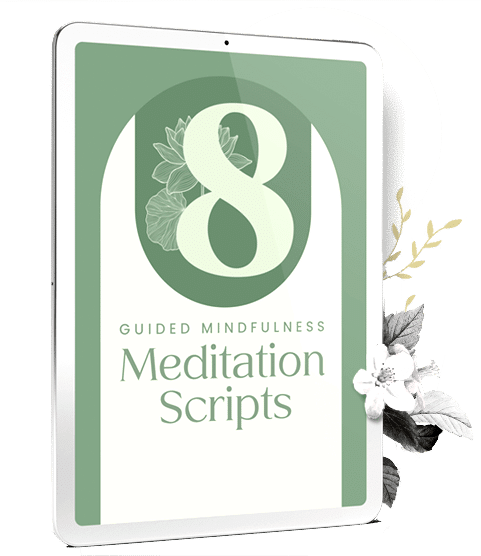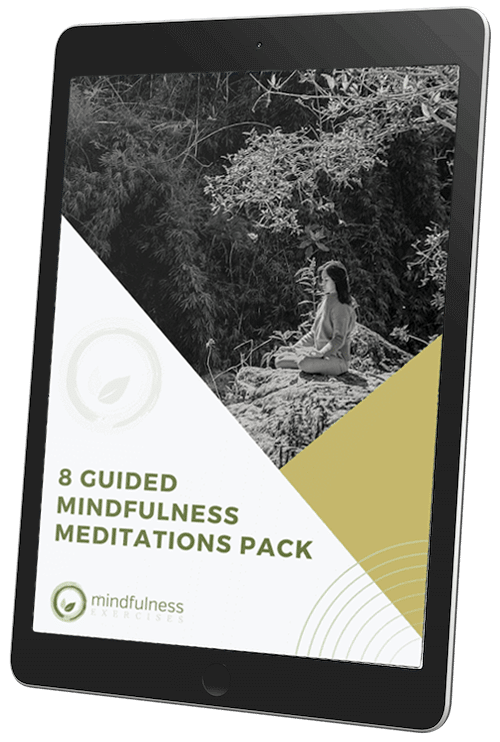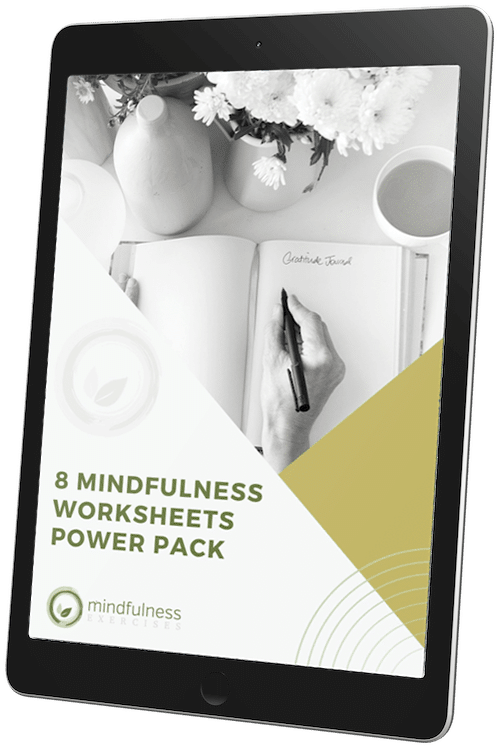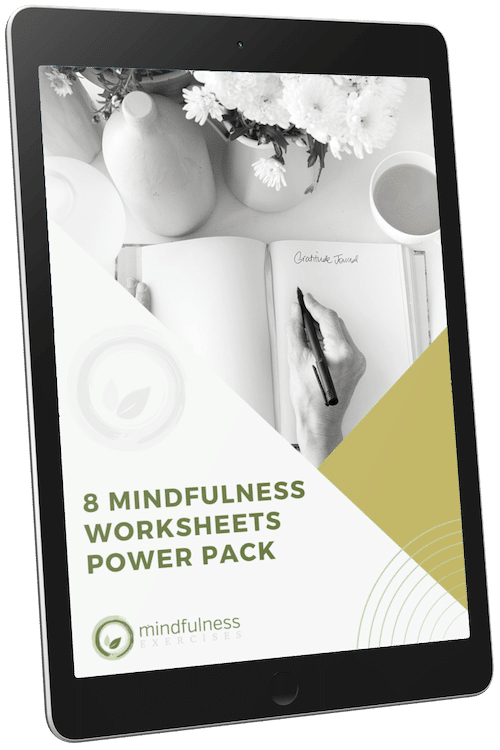Struggling to get a good night’s sleep? Mindfulness exercises can help. Here are 10 mindfulness exercises for sleep.
For those who struggle to get a good night’s sleep: you’re not alone. According to a Consumer Reports survey, 164 million Americans – that’s 68% of the American population – reported in 2015 that they experience sleep difficulties at least once a week. Of those, 27% said that they struggle to fall or to stay asleep on most nights. These widespread sleep struggles have led to a boom in the sleep business. In 2015, spending on sleep aids and remedies in the United States reached a staggering $41 billion.
The numbers beg the question. Is there another way of overcoming our sleep struggles that is natural, effective, and doesn’t break the bank? The answer to that question is a yes! It is entirely possible to dig into the root cause of our sleep struggles using mindfulness as our primary tool. By incorporating mindfulness practices both during the day and just before bedtime, we can facilitate our ability to rest with ease naturally, effectively, and without cost. Fortunately, there are several great mindfulness exercises for sleep.
The Roots of Sleeplessness
Understanding the root cause of why we struggle to sleep is an individual process, but there are numerous contributors that affect so many of us. We can consider these as a first step towards healing our sleep cycle. From the food and drink we consume, to changing life circumstances, to the overall state of mind we find ourselves in on a daily basis. We can compassionately look towards various aspects of our lives to assess what is helping and what is potentially hurting our ability to rest deeply.
If we are struggling to fall asleep or to stay asleep, we might consider some of the following factors:
The food and drink we consume play a large role in the quality of sleep we get. Sugar, caffeine, and alcohol, for instance, are just a few of the substances that can impede the circadian rhythms that are responsible for a natural, healthy sleep cycle. By eating mindfully and consuming nutrient dense, whole foods as much as possible, we balance our blood sugar and hormone levels which helps us to both fall asleep swiftly and to stay asleep throughout the night.
Stress, depression, and anxiety are prevalent in modern day life, challenges that are said to contribute to half of all cases of insomnia.3 In a fast-paced modern society, the mind is constantly engaged, making it very challenging for us to relax and to find contentment. We struggle to live in the present, frequently becoming consumed by stories of the past and ideas about the future. Many of the threats we experience are perceived, living primarily within the entanglements of the mind. However, the physiologically effects of these mental energies are just as pronounced as any real, imminent danger we might face. When we’re stressed or anxious, cortisol levels rise, which directly disrupts our circadian rhythm.
Various prescription drugs can also impact our ability to fall asleep and to stay asleep. Antidepressants, corticosteroids, thyroid hormone, and high blood pressure medications are just some of the substances that may interfere with sleep.iii
There are additional underlying causes that contribute to sleeplessness, such as genetic factors, illness, and sleep disorders. As we begin to open our awareness to some of these potential causes of insomnia. Or, of poor sleep quality in general, we intuitively begin to understand how we can best support our body and mind in an effort to improve the quality of our sleep.
How Mindfulness Promotes Healthy Sleep Patterns
Mindfulness promotes sleep through a variety of mechanisms, but when we boil it down, we can understand mindfulness as a way of soothing all of our physical, mental, emotional, and spiritual bodies. This promotes an overarching sense of balance that is conducive to healthy sleep.
Listed below are a few of the well-studied primary mechanisms that can help us to understand how mindfulness has such a positive effect on sleep.
As we become mindful of the breath, we intuitively begin to breathe more slowly and deeply. This activates our body’s ‘rest and digest’ system and eases the ‘fight or flight’ mechanism. This natural process supports balanced hormones, and therefore, our circadian rhythm as well.
If stress, anxiety, and depression are contributing factors in our personal sleep dilemmas, easing this inner experience with mindfulness practice can help us to enter into sleep more swiftly. Mindfulness practice has been shown to be of benefit in reducing these challenging psychological states.
As we become more aware of our thoughts, we interrupt the habitual thinking patterns that stand in between us and a good night’s sleep. We learn to ‘let go’ more easily and find that we move into sleep more effortlessly. There are many of these kinds of mindfulness exercises for sleep.
Mindfully Preparing for Bed
Setting the stage for a healthy sleep can help us to mentally prepare for a period of deep rest and rejuvenation. To prepare for a restful night’s sleep, consider the following tips.
Darkness is a signal to the body that it’s almost time for sleep, whereas light interrupts our circadian rhythm. Prepare for bed by dimming the lights (including those on your personal electronic devices) an hour or two before bed. Opt for candlelight in those last waking hours if this feels soothing to you.
If you expect the next day to be busy, write yourself a to-do list before hopping into bed. This will help to release any tendency you may have to mentally run through your following day repeatedly. Encouraging you to surrender more swiftly into sleep.
It might seem as though the necessity of sleep is obvious. However, we tend to take it for granted, only truly appreciating its value when we haven’t gotten enough of it. As you rest in bed, take a moment to remind yourself of how important these hours of rest are. Give thanks for the peace and comfort of the space that supports you.
10 Mindfulness Exercises for Sleep
There are a variety of mindfulness exercises and techniques that can help to support a healthy sleep cycle. Consider the following exercises if you are looking to enhance the quality of your sleep.

Tara Brach’s one-minute meditation is a simple way for us to reset our breath and to harness a deeper sense of awareness for the present moment. It is a simple way of letting the body know that you are preparing for a period of rest. You can use this meditation right when you get into bed or at any point during the day when you need a reset.

Listening to deep sleep music is another technique we can explore to help bring ourselves comfortably into a state of rest and release. This recording is designed to help bring harmony to the energetic body through seven different frequencies that correspond with the seven major chakras. As we bring ourselves into balance, sleep comes much more easily. This is one of our favorite mindfulness exercises for sleep.
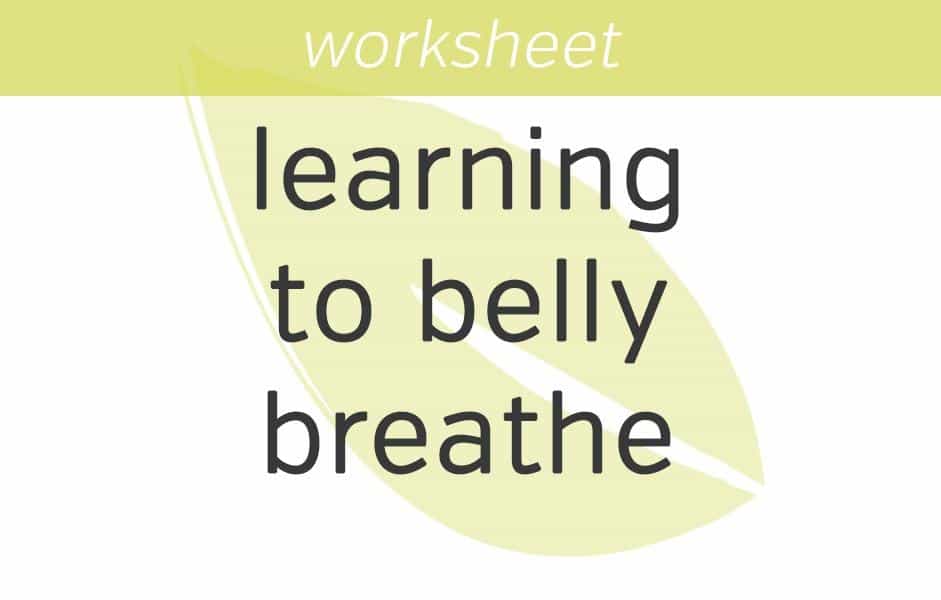
During waking hours, we can use the Learning to Belly Breathe worksheet to help assess the feel and flow of our breath. Since belly breathing helps to initiate the relaxation response, learning to breathe in this way can help us to physically and mentally relax when we come to rest. This exercise enhances our sense of self-awareness and the connection we have to our physical body.
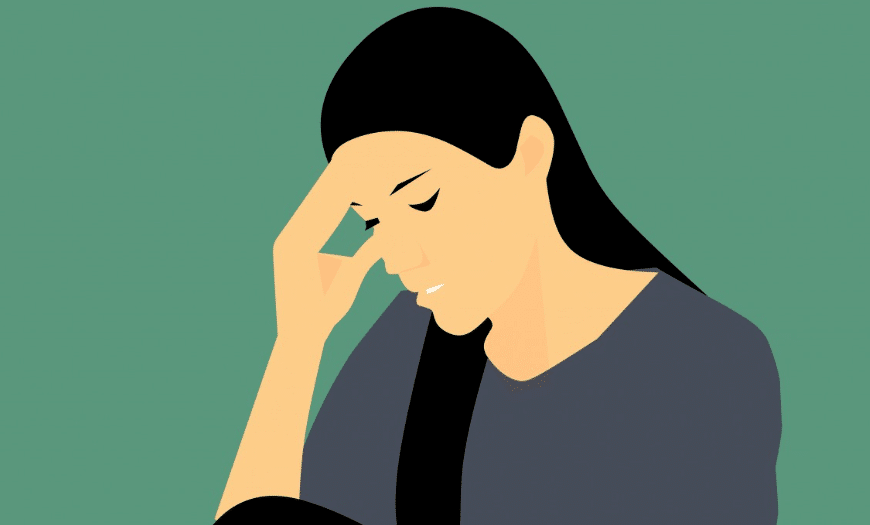
Whether we are entirely aware of it or not, the physical body stores much of our emotional tension, which may be interfering with our sleep. Tension release helps us to consciously relax the physical body, and in doing so, helps to release some of the energetic or emotional blockages we have stored within us. As we release the physical body, we invite the mind to follow suit, which helps to support a restorative night’s rest.

In this short introduction to sleep, Deepak Chopra guides us gently into a state of inner peace and calm that helps us to enter into sleep more effortlessly. He also shares his understanding that much of what inhibits our ability to fall asleep is the idea we have that we won’t be able to fall asleep. By reminding ourselves to release the stress and anxiety surrounding this idea, we improve our sense of rest and ease, even if it does end up taking a little bit longer to fall asleep.
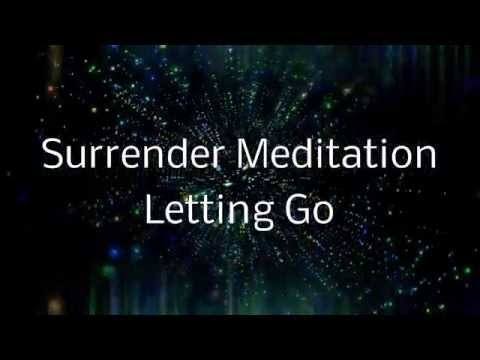
In this guided meditation by Jason Stephenson, we are encouraged to surrender to the love and universal wisdom that surrounds us. By surrendering before sleep, we release all worries and fears that restrict us from getting the peaceful rest that we require for optimal functioning. The meditation includes various mindfulness techniques, such as breath awareness and a body scan.
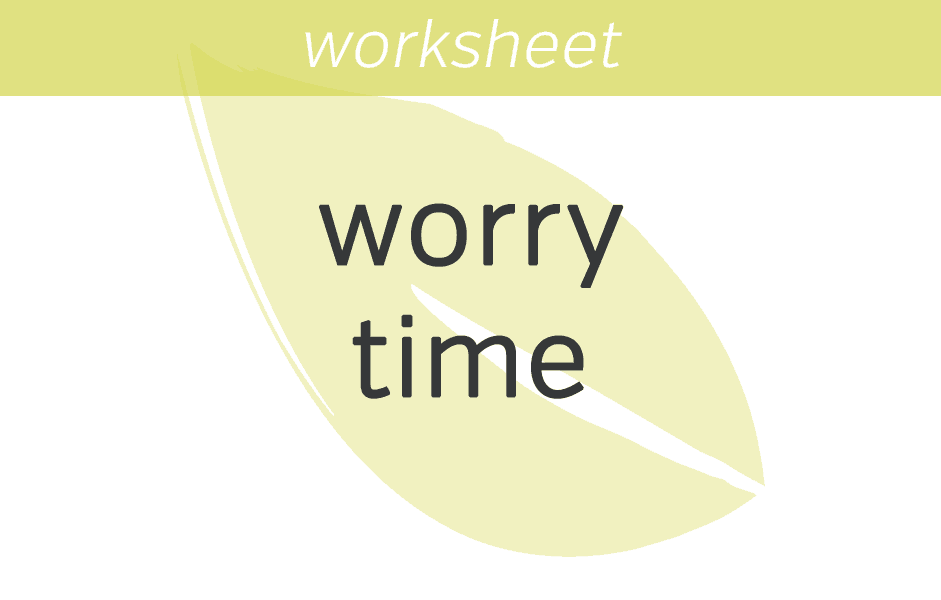
It might sound counter intuitive, but ensuring that we have the time and space we need to explore our worried feelings in any way that suits us can help us to release what does not need to be carried with us into bed. This exercise can help us to gain perspective on the worried thoughts that pass through us, helping us to gain a deeper sense of self-awareness.

This gratitude practice by Sean Fargo reminds us to tune into the present moment and towards all of the blessings we have to be thankful for. It’s a practice that can help us to release any feelings of agitation or unease that may be inhibiting our ability to fall asleep. By coming back to the blessing of being alive, we let go of whatever thoughts may be distracting us from the rest that our bodies are yearning for.

This worksheet is a mindfulness exercise that we can use at any point during the day to harness our awareness of the stories we tell ourselves. As we come to see more clearly the stories we tell ourselves that hold us back from peace and contentment, we are in a better position to release them. This worksheet can be explored in waking hours or before we close our eyes at the end of the day.

This recording of Tibetan flute music can help to carry us into a deep state of peace and tranquility, supporting our descent into a sleeping state. Behind the flute music, the OM mantra is chanted. This primordial sound can help to cleanse and balance the energetic body, bringing us into alignment within ourselves and with everything around us. This is one of our favorite mindfulness exercises for sleep.
Wherever you are on your mindfulness journey, these mindfulness exercises for sleep can help to deepen the quality of your resting hours. So that you are able to engage more fully with waking day life. You can further enhance your daily mindfulness practice by exploring hundreds of free mindfulness worksheets. So that when each day comes to a close, you are in a harmonious state of mind that will help you to transition effortlessly into those nighttime hours.
About Me


Sean Fargo
Mindfulness Exercises Founder
Sean Fargo, founder of Mindfulness Exercises and the Mindfulness Exercises Institute, is a highly sought-after mindfulness teacher, coach, and consultant. After spending two years as a Buddhist monk and assisting world-renowned mindfulness leaders like Jack Kornfield at Spirit Rock Meditation Center, Sean went on to share his own gifts and wisdom with the world. Facilitating personal growth in everyone from individuals and aspiring mindfulness teachers to celebrities and executives at Fortune 500 companies, Sean is committed to supporting collective mindful evolution across the globe.
References
1 "Why Americans Can't Sleep". Consumer Reports, 2016, https://www.consumerreports.org/sleep/why-americans-cant-sleep/. Accessed 10 July 2019.
2 "Sleep: The Health Catalyst". Edison Clinic, 2018, https://www.edisonclinic.com/post/sleep-the-health-catalyst. Accessed 10 July 2019.
3 Robinson, Lawrence et al. "Insomnia - Helpguide.Org". Helpguide.Org, 2019, https://www.helpguide.org/articles/sleep/insomnia-causes-and-cures.htm. Accessed 10 July 2019.
4 Bergland, Christopher. "Cortisol: Why The "Stress Hormone” Is Public Enemy No. 1". Psychology Today, 2013, https://www.psychologytoday.com/intl/blog/the-athletes-way/201301/cortisol-why-the-stress-hormone-is-public-enemy-no-1. Accessed 10 July 2019..
5 Hofmann, Stefan G. et al. "The Effect Of Mindfulness-Based Therapy On Anxiety And Depression: A Meta-Analytic Review.". Journal Of Consulting And Clinical Psychology, vol 78, no. 2, 2010, pp. 169-183. American Psychological Association (APA), doi:10.1037/a0018555. Accessed 10 July 2019.




